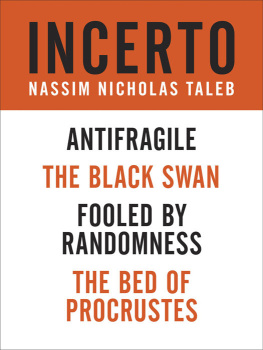This book is intended as a reference volume only. It is sold with the understanding that the publisher and author are not engaged in rendering any professional services. The information given here is designed to help you make informed decisions.
Published by Greenleaf Book Group Press
Austin, Texas
www.gbgpress.com
Copyright 2021 David Lockwood
All rights reserved.
Thank you for purchasing an authorized edition of this book and for complying with copyright law. No part of this book may be reproduced, stored in a retrieval system, or transmitted by any means, electronic, mechanical, photocopying, recording, or otherwise, without written permission from the copyright holder.
Distributed by Greenleaf Book Group
For ordering information or special discounts for bulk purchases, please contact Greenleaf Book Group at PO Box 91869, Austin, TX 78709, 512.891.6100.
Design and composition by Greenleaf Book Group
Cover design by Greenleaf Book Group
Cover Image: iStockphoto/Andrew_Howe
Publishers Cataloging-in-Publication data is available.
Print ISBN: 978-1-62634-880-6
eBook ISBN: 978-1-62634-881-3
Part of the Tree Neutral program, which offsets the number of trees consumed in the production and printing of this book by taking proactive steps, such as planting trees in direct proportion to the number of trees used: www.treeneutral.com |  |
Printed in the United States of America on acid-free paper
21 22 23 24 25 26 27 10 9 8 7 6 5 4 3 2 1
First Edition
INTRODUCTION
Ships, Sailors, and Prayers
Diagoras and the Existence of the Gods
The first person in history known to have written about survivor bias was the 5th-century BC Greek philosopher Diagoras of Melos. Diagoras was a traveling poet who earned commissions from wealthy patrons by writing hymns to the gods.
Diagoras is most famous as the first atheist. Ancient manuscripts reveal that Diagoras once wrote a poem that was stolen by another poet, who went on to achieve great success with the composition. Diagoras confronted the thief, who swore a solemn oath to the gods that the work was his. Furious at the mans refusal to admit to plagiarism, Diagoras implored the gods to punish the man for the appropriation of anothers creative efforts and for swearing a false oath. When this demand for retribution went unanswered, Diagoras lost faith in the Greek gods.
Diagoras was challenged by a friend to defend his atheism. The friend pointed to paintings on the walls of the temples of sailors who were saved from violent storms after praying to the gods.
The friend then asked: You think the gods have no care for man? Why, you can see from all these votive pictures here how many people have escaped the fury of storms at sea by praying to the gods who have brought them safe to harbor.
Diagoras replied: Yes, indeed, but where are the pictures of all those who suffered shipwreck and perished in the waves?
As a result of this exchange, Diagoras secured his place in history as the first atheist and the first to explicitly call out survivor bias. In this example, Diagorass friend focuses on the survivors of the storm. Those who perished despite their pleas to the gods were no longer among the living, and thus their images were not portrayed on murals throughout Athens.
Diagorass friend was fooled by the winners. By focusing only on those who survived the storms at sea and ignoring those who drowned, his friend was led to the wrong conclusion about the existence of the gods.
Survivor Bias
We are fooled by the winners because survivor bias distorts our thinking. Survivor bias has been defined as a logical error of concentrating on the people or things that made it past some selection process and overlooking those that did not. In other words, we fail to learn from the non-survivors, those who have lost.
This tendency to focus on the winners is understandable. We are fooled by the winners because the winners, whether people, objects, data, or ships that return safely to port, are often easier to observe. But in many instances, we can derive as much or even more insight from those who have lost.
I began to write this book after spending three decades working on Wall Street and in Silicon Valley, witnessing firsthand how survivor bias was used to deceive us. As I continued to investigate, I discovered that the deceptive influence of survivor bias on our thinking extends beyond what I had first imagined.
Through the process of researching and writing this book, I uncovered a number of unexpected instances in which survivor bias impacts our daily lives. I also became convinced that survivor bias clouds our view of the past, which prevents us from gaining a clear view of our future.
Two Types of Survivor Bias
Survivor bias comes in two types that are differentiated by our ability to observe the non-survivors.
The first could be called Diagoras-type survivor bias. In the example of the Greek ships, Diagoras is the observer. He is able to count the number of ships that returned safely and those that did not. Even if all the ships floundered and were lost at sea, Diagoras could still observe that all the sailors had drowned.
The second could be labeled Sailor-type survivor bias. In this case, the observer is a sailor on one of the ships. A sailor is able to count the number of ships that left port and safely returned, but only if he survives the voyage. Just as in the case of Diagoras-type survivor bias, a sailor can be deceived upon returning to port by failing to consider the non-surviving ships. But he can be further misled if he does not realize that his observations are limited to only those instances in which he is still alive.
About This Book
This book is split into two parts. In Part I, we will look at Diagoras-type survivor bias. We will see how survivor bias is used by others to deceive us into overpaying hedge fund managers, taking pills that dont cure our ills, following the bad advice of many advice books, overspending on lotteries, opening restaurants that are likely to close, and suffering through diets that dont help us lose weight. We will show how a professor discovered during WWII that Allied Bomber Command was deceived by survivor bias, and that even today history is still written by the winners.
In Part II, we will examine Sailor-type survivor bias. We will demonstrate how survivor bias distorts our perspective on evolutionary history, including our good fortune that 65 million years ago a space rock targeted our planet, wiping out the dinosaurs, and that against all odds fifty thousand years ago we vanquished at least five other human species. We will analyze how survivor bias misleads us about the dangers of atomic weapons and global warming. We will also see how survivor bias aids the resolution of Fermis paradox (the puzzle concerning the existence of intelligent life in the universe) and provides insights into the mortality of Schrdingers cat (one of the most important questions in modern physics).


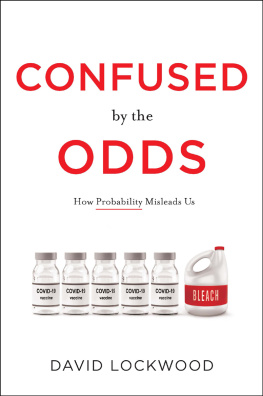
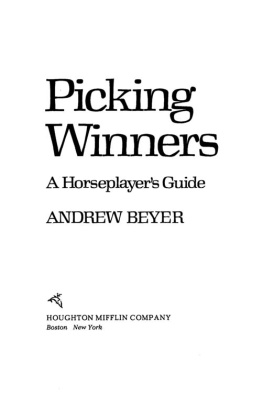
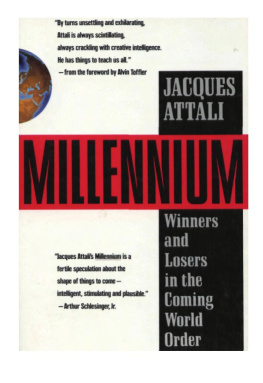
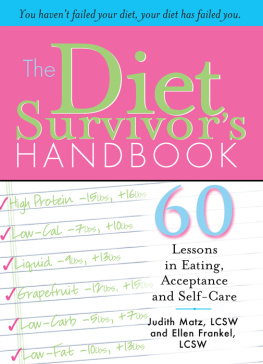
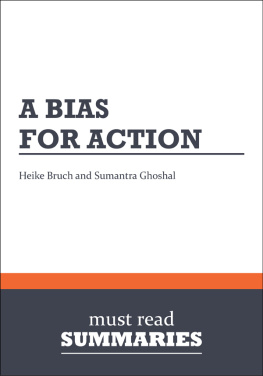
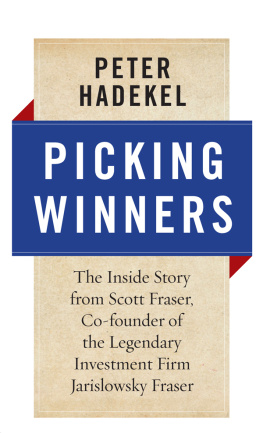
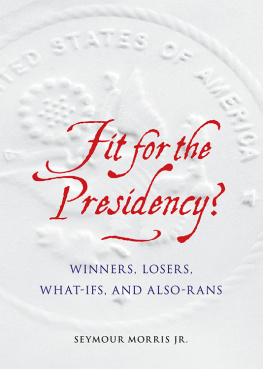

![Tim Richards [Tim Richards] - Investing Psychology: The Effects of Behavioral Finance on Investment Choice and Bias, + Website](/uploads/posts/book/124122/thumbs/tim-richards-tim-richards-investing-psychology.jpg)
